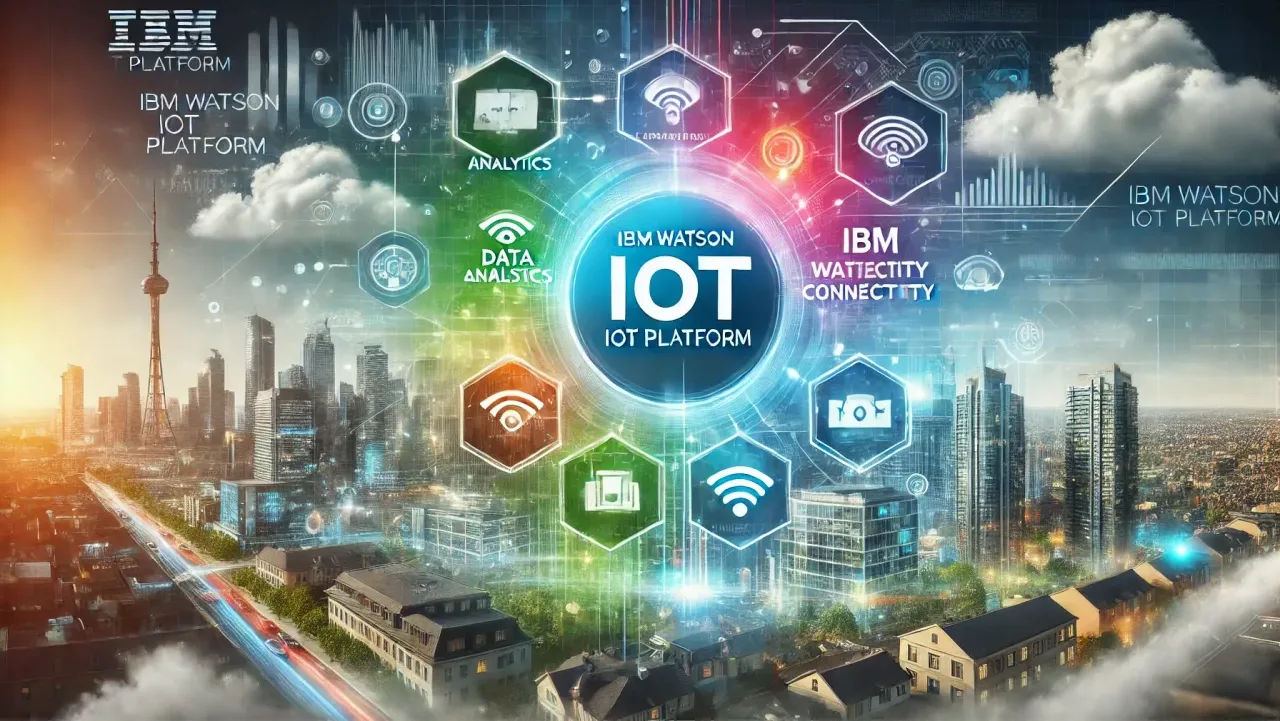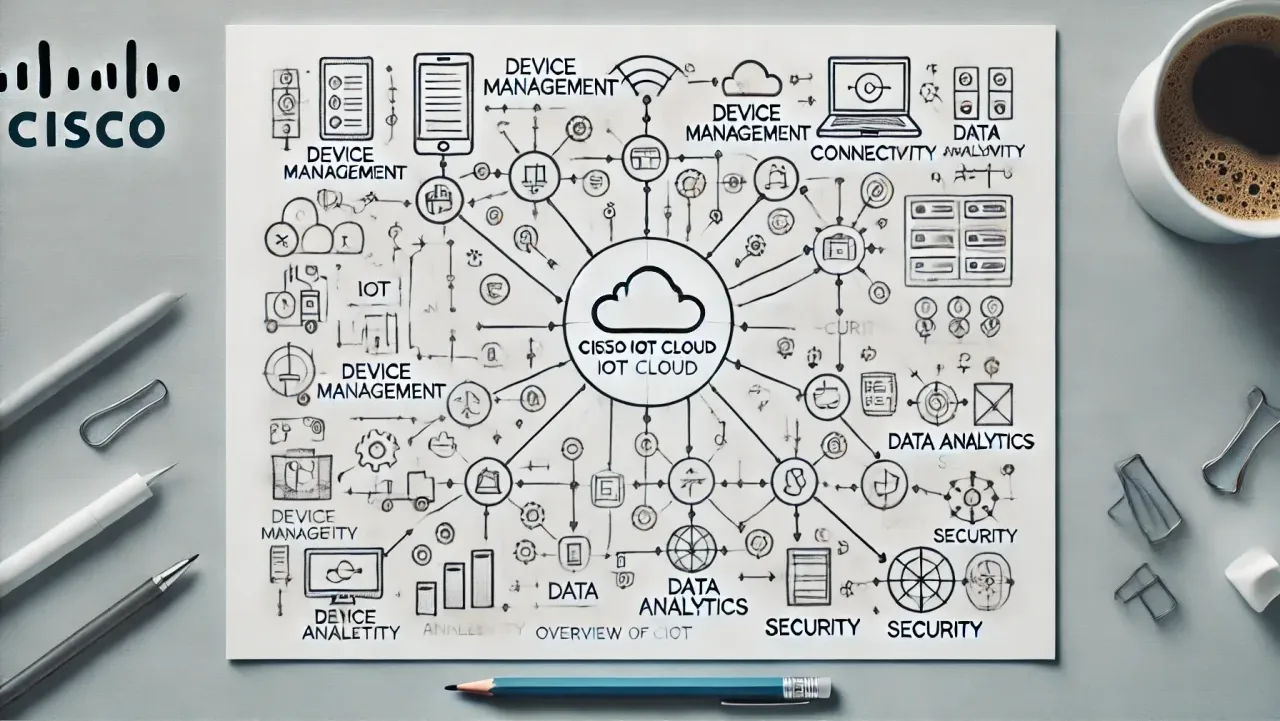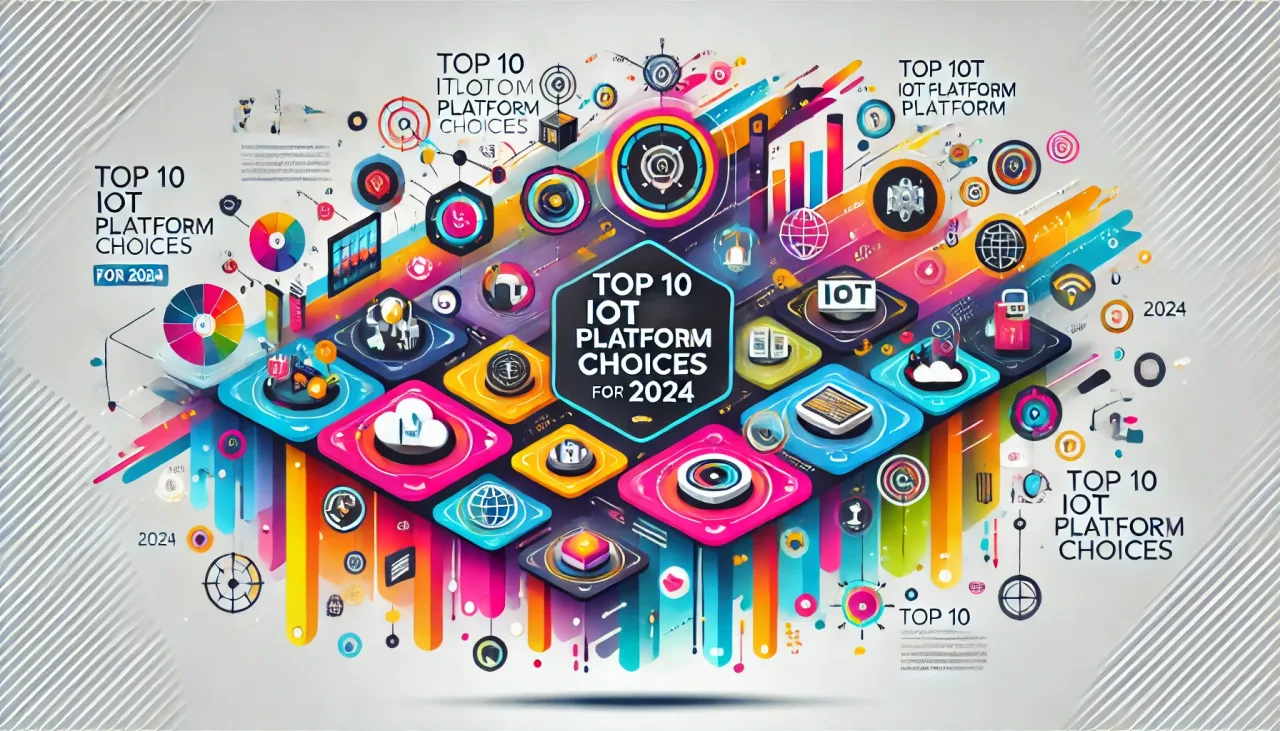In this Article
Introduction to Top 10 IoT Platform Choices
The Internet of Things (IoT) is reshaping the technological landscape, driving innovation across diverse sectors. As IoT technology evolves, so do the IoT platforms that support it. These platforms are critical for managing IoT devices, data, and applications, providing businesses with the tools necessary to leverage IoT’s full potential. With numerous IoT platform choices available, selecting the right IoT platform can significantly impact your operational efficiency and innovation.
In this comprehensive article, we will explore the top 10 IoT platform choices for 2024. We will review each platform’s key features, benefits, and use cases to guide businesses in making informed decisions. Understanding the strengths of each platform will help organizations select the one that aligns with their needs and objectives, ultimately enhancing their IoT strategy and outcomes.
1. AWS IoT Core
Overview of AWS IoT Core
AWS IoT Core is a robust managed cloud platform that facilitates seamless interaction between connected devices and cloud applications. It boasts the capability to handle billions of devices and trillions of messages, ensuring both scalability and reliability.
Key Features of AWS IoT Core
- Device Management: AWS IoT Device Management streamlines onboarding, organization, monitoring, and remote management of IoT devices at scale.
- Secure Communication: The platform ensures secure communication through TLS and mutual authentication.
- Real-Time Data Processing: AWS IoT Analytics offers real-time data analysis for actionable insights.
Use Cases for AWS IoT Core
- Smart Homes: Manage and control smart home devices like thermostats, lighting systems, and security cameras.
- Industrial IoT: Monitor and manage industrial equipment to enhance operational efficiency and minimize downtime.
- Healthcare: Support remote patient monitoring and telehealth services to improve healthcare delivery.
2. Microsoft Azure IoT Hub
Overview of Microsoft Azure IoT Hub
Microsoft Azure IoT Hub is a cloud platform designed for bi-directional communication between IoT applications and devices. It provides extensive security features and integrates seamlessly with other Azure services.
Key Features of Microsoft Azure IoT Hub
- Device Provisioning: Azure IoT Hub Device Provisioning Service simplifies secure device connection and configuration.
- Edge Computing: Azure IoT Edge allows data processing and analytics at the edge, reducing latency and bandwidth consumption.
- Integration: Easy integration with Azure services like Azure Machine Learning, Azure Functions, and Azure Stream Analytics.
Use Cases for Microsoft Azure IoT Hub
- Smart Cities: Deploy solutions for traffic management, waste management, and energy monitoring.
- Retail: Improve customer experiences with smart shelves, personalized offers, and inventory management.
3. Google Cloud IoT Core
Overview of Google Cloud IoT Core
Google Cloud IoT Core is a fully managed service that connects, manages, and ingests data from globally distributed devices. It integrates with Google Cloud’s analytics services to offer a comprehensive IoT solution.
Key Features of Google Cloud IoT Core
- Device Management: Supports large-scale device deployment and management with ease.
- Real-Time Data Analysis: Integration with Google Cloud Pub/Sub, Dataflow, and BigQuery for real-time data insights.
- Security: Ensures device security with mutual authentication and secure communication.
Use Cases for Google Cloud IoT Core
- Agriculture: Apply precision agriculture techniques to optimize crop yields and resource usage.
- Healthcare: Enhance patient care through remote monitoring and health data analysis.
- Manufacturing: Streamline processes with predictive maintenance and real-time monitoring.
4. IBM Watson IoT Platform
Overview of IBM Watson IoT Platform

Ai Image by Dall-E
IBM Watson IoT Platform offers advanced capabilities for device management, data collection, and real-time analytics, leveraging IBM’s cognitive computing and machine learning technologies.
Key Features of IBM Watson IoT Platform
- AI and Machine Learning: Integrates with IBM Watson services for AI-driven insights and automation.
- Device Connectivity: Supports diverse communication protocols for device connectivity.
- Advanced Analytics: Provides real-time analytics and visualization tools for IoT data management.
Use Cases for IBM Watson IoT Platform
- Manufacturing: Enhance processes through predictive maintenance and quality control.
- Energy Management: Optimize energy consumption and distribution in smart grids and buildings.
- Transportation: Improve fleet management and logistics with real-time tracking and route optimization.
5. Oracle IoT Cloud
Overview of Oracle IoT Cloud
Oracle IoT Cloud delivers a comprehensive suite of applications and tools for device connectivity, data analysis, and application development, offering a robust platform for IoT solutions.
Key Features of Oracle IoT Cloud
- Application Development: Integrated environment for building custom IoT applications.
- Predictive Analytics: Advanced capabilities for predicting equipment failures and optimizing operations.
- Integration: Seamless integration with Oracle’s enterprise applications and databases.
Use Cases for Oracle IoT Cloud
- Logistics and Transportation: Enhance fleet management and logistics through real-time tracking and route optimization.
- Smart Agriculture: Monitor and manage agricultural operations to boost efficiency and productivity.
- Retail: Improve retail operations with smart inventory management and customer insights.
6. SAP Leonardo IoT
Overview of SAP Leonardo IoT
SAP Leonardo IoT is an integrated suite of solutions that connects things with people and processes, utilizing SAP’s ERP and analytics capabilities for end-to-end IoT solutions.
Key Features of SAP Leonardo IoT
- Digital Twin: Create digital representations of physical assets for improved monitoring and management.
- Integration: Seamlessly integrates with SAP’s ERP and supply chain management systems.
- Predictive Maintenance: Leverage IoT data to anticipate and prevent equipment failures.
Use Cases for SAP Leonardo IoT
- Manufacturing: Implement smart manufacturing solutions to enhance production efficiency and reduce downtime.
- Retail: Optimize retail operations with smart inventory management and customer insights.
- Healthcare: Advance healthcare solutions through remote monitoring and analytics.
7. Siemens MindSphere
Overview of Siemens MindSphere
Siemens MindSphere is a cloud-based IoT operating system that connects products, plants, systems, and machines, offering tools for data collection, analysis, and application development.
Key Features of Siemens MindSphere
- Open Ecosystem: Supports a wide range of devices and communication protocols.
- Data Analytics: Provides advanced tools for processing and visualizing IoT data.
- Application Development: Integrated environment for building custom IoT applications.
Use Cases for Siemens MindSphere
- Energy Management: Optimize energy consumption in industrial plants and commercial buildings.
- Smart Cities: Deploy solutions for traffic management and environmental monitoring.
- Industrial Automation: Enhance processes through predictive maintenance and real-time monitoring.
8. PTC ThingWorx
Overview of PTC ThingWorx
PTC ThingWorx offers a comprehensive platform for device connectivity, data analysis, and application development, supporting various industrial IoT use cases.
Key Features of PTC ThingWorx
- Rapid Development: Low-code environment for swift application development.
- Industrial Connectivity: Supports numerous industrial protocols and standards.
- Augmented Reality: Integrates with PTC’s Vuforia for augmented reality applications.
Use Cases for PTC ThingWorx
- Industrial IoT: Improve operations with predictive maintenance, asset monitoring, and process optimization.
- Healthcare: Implement remote patient monitoring solutions.
- Automotive: Enhance diagnostics and maintenance with real-time data analysis.
9. Cisco IoT Cloud
Overview of Cisco IoT Cloud

Ai Image by Dall-E
Cisco IoT Cloud provides a secure and scalable platform for managing IoT devices and data, offering advanced connectivity and data management capabilities.
Key Features of Cisco IoT Cloud
- Secure Connectivity: Ensures reliable device connectivity with advanced security protocols.
- Data Management: Features robust tools for data processing and analysis.
- Edge Computing: Supports edge computing to minimize latency and bandwidth usage.
Use Cases for Cisco IoT Cloud
- Smart Buildings: Implement energy management and security solutions.
- Transportation: Enhance systems through real-time monitoring, route optimization, and predictive maintenance.
- Agriculture: Optimize practices with precision farming and real-time monitoring.
10. Minnovation IoT Platform
Overview of Minnovation IoT Platform
Minnovation offers tailored IoT solutions designed to meet specific business needs, ensuring seamless integration, robust security, and enhanced performance.
Key Features of Minnovation IoT Platform
- Custom Solutions: Tailored to meet specific business requirements.
- Robust Security: Advanced features to protect data and devices.
- Scalable Architecture: Supports expanding IoT networks.
Use Cases for Minnovation IoT Platform
- Smart Cities: Deploy solutions for smart lighting, waste management, and traffic control.
- Industrial IoT: Enhance operations with predictive maintenance, remote monitoring, and process optimization.
- Healthcare: Provide advanced solutions through connected devices and remote monitoring.
Conclusion
Choosing the right IoT platform is crucial for optimizing IoT deployments and achieving business objectives. The top 10 IoT platform choices outlined above provide a diverse range of features and capabilities tailored to various industries and use cases. Understanding these platforms’ strengths and applications allows businesses to make informed decisions that drive innovation and enhance operational efficiency.
Each platform offers unique functionalities that can support different aspects of IoT implementation. AWS IoT Core, with its robust device management and real-time data processing capabilities, is ideal for industries requiring scalable and secure communication between devices. Microsoft Azure IoT Hub excels in providing extensive security features and integration with other Azure services, making it a preferred choice for enterprises looking to implement edge computing and advanced analytics.
Ultimately, the right IoT platform can significantly impact a company’s ability to harness the power of IoT technology. Whether it’s improving product quality, reducing costs, or enhancing customer experiences, these platforms offer the tools and infrastructure needed to achieve business objectives and stay ahead in the digital age.
How We Can Help
At Minnovation, we specialize in delivering tailored IoT platform solutions designed to meet your business’s specific needs. Our expertise in various IoT platform choices ensures seamless integration, robust security, and enhanced performance. We offer consultation, development, and management services to help you maximize the potential of IoT platform technology. Whether you’re implementing a new IoT platform or optimizing an existing one, our team is here to assist you. For more information visit our site or Contact us
Reference
Related Blog Posts
How Smart Cities Connect: Getting Started with Edge AI and IoT Technology
How to Get Started with Edge AI and IoT Technologies in Smart Cities: Overcoming Integration Challenges In recent years, the concept of smart cities has evolved from a futuristic Read More
5 Step Strategy: Ensuring Security and Privacy in 15-Minute Smart Cities
Introduction Ensuring security and privacy in 15-minute smart cities is a critical challenge as urban areas become increasingly connected through IoT and edge AI technologies. These cities aim to Read More
What is a smart city and the challenge of legacy systems
How to Get Started with Integrating Legacy Systems in Smart Cities Smart cities are transforming urban landscapes by leveraging technology to improve the quality of life for residents. However, Read More




